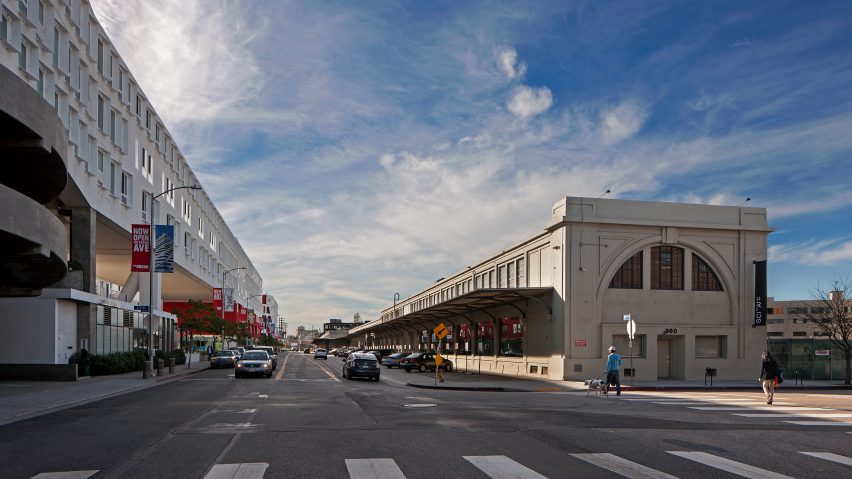Two senior faculty members have resigned from Californian architecture school SCI-Arc after an investigation was launched into the labour practices of the school's staff this spring.
Undergraduate chair Tom Wiscombe and history and theory coordinator Marrikka Trotter have both resigned from their positions at the Southern California Institute of Architecture, which is better known as SCI-Arc.
Allegations "didn't align with the values SCI-Arc"
The resignations come after an external investigation was launched by the Los Angeles-based school's board of trustees following allegations of labour exploitation by the two faculty members.
"On behalf of the board of trustees, I am pleased to announce that an outside, independent firm has completed a thorough inquiry into allegations that didn't align with the values SCI-Arc has established in its first half-century," said chairman of the board Kevin Ratner.
The resignations, as well as changes to hiring and other school policies, were announced in two letters sent out by the school.
"Over the past few months, SCI-Arc has been actively addressing internal issues of great importance to the overall health of the school," said SCI-Arc director Hernán Díaz Alonso in one of the letters.
"First and foremost, our focus is on the experience and education of our students."
On March 25, Trotter spoke at a talk called "How to be in an office", which caused widespread indignation and exposure of issues within the school. Multiple students then alleged that Wiscombe had asked them to work for free on projects for his own studio Tom Wiscombe Architecture (TWA) as part of the curriculum.
While Wiscombe did not participate in the talk, the statements made by Trotter – who is an associate at TWA –and Wiscombe's practices were linked in a petition put forward by students and alumni shortly after.
Following the incident, both faculty members were placed on administrative leave.
New protocols introduced at school
Besides the specific allegations against Wiscombe, the event and its fallout exposed potential expectations that young architects should perform unpaid labour in order to get ahead in the industry. To address this, a slew of new protocols for hiring and student labour standards were released by the institution.
These changes include the implementation of career services, a revised internship policy, the creation of a working group to review internships and the opening up of teaching assistantships for the students.
The changes also outline restrictions on the hiring of matriculating students by the studios of faculty working at the school and require all interns to be paid, even when interning for school credit.
Academics John Cooper, Erik Ghenoiu and Marcelyn Gow will replace Trotter as history and theory coordinators in the fall. SCI-Arc is in the process of filling the vacancies left by Wiscombe.
The scrutinisation of architectural schools has become an international trend this year. In June, the director of Bartlett in London resigned after allegations of a "toxic" culture at the school.
"I feel it is also important to note that the problem spans far beyond these two individuals at SCI-Arc," wrote Corie Yaguchi in an opinion piece for Dezeen.
"These issues can be found everywhere – within other academic institutions, in the professional world, and in other fields as well – but that does not make them okay."

